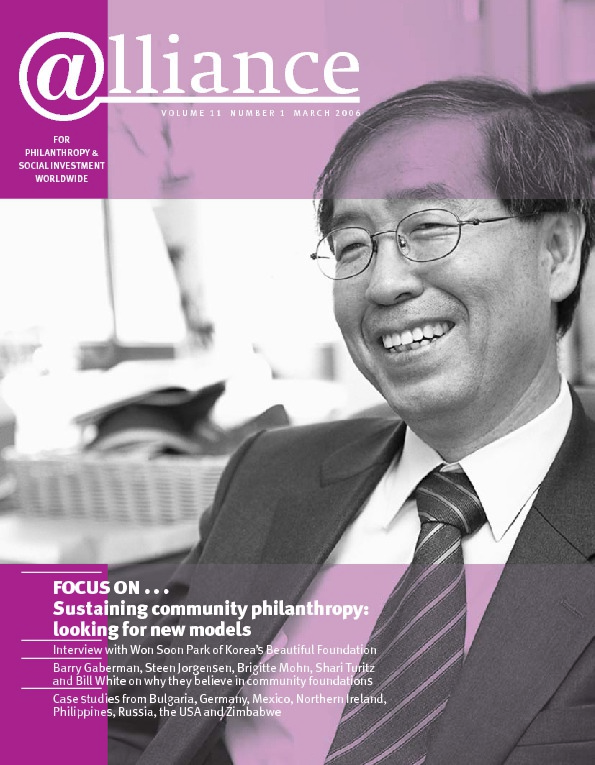The Nebraska Community Foundation (NCF) proves the transformational power of the collective. Today, over 1,400 community leaders serve as advisers to NCF affiliated funds. In the last five years, nearly 25,000 individual donations have been given to these funds. Since being formed in 1993, NCF has reinvested over $51 million in Nebraska and its hometowns.
Most importantly, community leaders are now telling us – and each other – that they believe they can be successful. NCF thus incorporates a community-driven system that goes far beyond traditional fundraising and endowment building.
In fact we describe NCF as a community development institution that uses philanthropy as a tool. It does not itself make grants, but empowers community leaders to raise and grant their own funds. One of our primary goals is to push as much power as possible to the community level while still allowing NCF to be an effective fiduciary. Our deep understanding of the opportunities and challenges in Nebraska’s rural communities has led us to build this innovative, decentralized system.
Nebraskans have a strong ethic of giving back, especially to church and higher education. NCF educates and empowers community leaders to become more considered in their community economic development efforts, better advocates of their agenda, and less afraid of fundraising. By these means, NCF is helping develop an ethic of giving to support community needs.
Capital, under typical market conditions, flows to certainty. For the past several decades, there has been a lack of economic certainty in most of our rural communities and a consequent flight of financial capital, human capital and, most importantly, hope. But even under these dire circumstances, NCF has identified two opportunities to stem the flight and reinvigorate hope. They are:
•the ability to live and work from anywhere, owing to information technology and high-speed internet access;
•a massive transfer of wealth from one generation to the next.
The first of these has been reviewed extensively both academically and in practice, but the transfer of wealth, especially as a potential strategy for rural America, has not and is therefore the focus of the next few paragraphs.
Transfer of wealth
In 2001 NCF completed analyses[1] of both the magnitude and the peak of the transfer of wealth for Nebraska and each of its 93 counties. Based on those findings, NCF estimates that $94 billion will be transferred in the next 50 years in rural Nebraska (750,000 citizens). More important still is the timing, with 86 of 93 counties experiencing their peak transfer on or before 2039; 26 very rural counties will peak on or before 2014.[2] In rural Nebraska, commonly referred to as land-rich and cash-poor, engaging the middle class in estate planning to ensure that they include gifts to sustain the community is essential to capitalize on this opportunity.
Today, over 70 community affiliated funds are actively building endowments by using the transfer of wealth as a call to action. Total endowments and confirmed expectancies for these funds are now nearly $28 million compared with a total of $10 million in December 2001.
Using the transfer of wealth opportunity to devise an asset-based community development strategy, NCF has created the HomeTown Competitiveness (HTC) collaborative. HTC helps communities to identify reachable goals and strategies focused on four pillars of reversing rural decline: building leadership and community capacity, engaging young people, fostering local philanthropy and endowment building, and supporting entrepreneurship. HTC helps community leaders with endowment building by giving prospective donors a better case statement. In 2005, HTC was awarded one of only six $2 million grants (from more than 180 applications) from the W K Kellogg Foundation to build a statewide Entrepreneurship Development System.
‘A national model’
The efforts of NCF and our affiliated funds have received regional and national attention. The New York Times recently referred to NCF as ‘a national model’, while Susan Berresford, President of the Ford Foundation, speaking at the NCF Annual Banquet last November, called NCF a ‘strong, unique and national model’ because it:
•is built and sustained from the grassroots;
•values and nurtures entrepreneurial leadership;
•emphasizes effectiveness, especially in grantmaking, to support economic opportunity;
•embraces and seeks to strengthen Nebraska values.
1 Based on the groundbreaking work by J J Havens and P G Schervish, Millionaires and the Millennium: New estimates of the forthcoming wealth transfer and the prospects for a golden age of philanthropy Boston College Social Welfare Research Institute, 1999.
2 By comparison, the peak transfer for the US as a whole will not occur until some time after 2050, if ever, as each year the country continues to become larger and wealthier.
Jeff Yost is President and CEO of the Nebraska Community Foundation. He can be contacted at jeffyost@nebcommfound.org
To learn more about NCF or HTC, see http://www.nebcommfound.org


Comments (0)